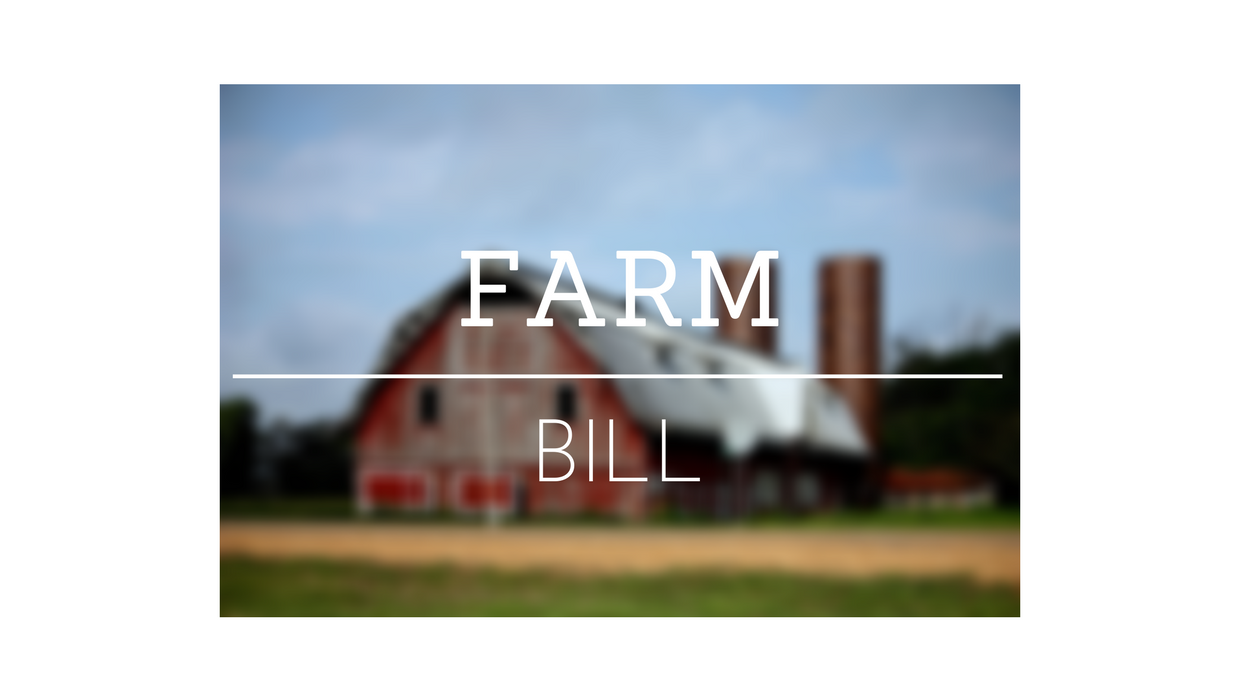The U.S. House of Representatives is out of session until after the Nov. 6 election, failing to join with the Senate in passing a new farm bill. The former 2014 farm bill expired at midnight Sept. 30.
That doesn’t mean the principal negotiators for the farm bill have all gone home.
Senate Agriculture Committee Chairman Pat Roberts, R-KS; Ranking Member Debbie Stabenow, D-MI; House Agriculture Committee Chairman Michael Conaway, R-TX; and Ranking Member Collin Peterson, D-MN; met at the Capitol Oct. 4 and emerged from their conference room posing for a picture in a show of amity amid a small gathering of waiting reporters.
Stabenow said afterward that two minor titles were near completion but “the big titles are still open. There’s disagreements on commodity, conservation, energy,” Politico reported.
“It’s not just about SNAP. I see basically a lot of regional differences,” Stabenow later told Agri-Pulse, “I appreciate (Conaway), being from west Texas doing all that he can for cotton, but his bill moves tens or hundreds of millions of dollars away from the Midwest and their growers who have seen prices drop by more than 50 percent, and costs going up, and everything with trade, it just doesn’t work.
“We have to find ways to be practical and be able to get something done, because our farmers and ranchers need certainty, now more than ever.”
Cotton growers would benefit from a provision in the House allowing farmers in drought-hit parts of the central and southern Plains, including most of Texas, to use higher per-acre yields when claiming farm subsidies, according to an analysis by the Congressional Budget Office. Farm subsidy costs would rise by an estimated $577 million because of the higher yield calculations for cotton growers, according to four economists from the University of Illinois and Ohio State University writing at the farmdoc Daily blog.
The cost would be offset by denying subsidies to farmers who did not plant farm program crops, chiefly grains, cotton and soybeans, on eligible land from 2009 to 2017. The re-allocation of base acres would hurt the West, the Plains and much of the South the most.
“While all four crops are in a relatively better revenue position in 2018 compared to 2014, the forecast for cotton revenue would place that crop in a significantly improved situation as the 2018 forecast is 117 percent of the five-year Olympic average (2013-17), the economists wrote.
“The conference negotiations appear to be at a stalemate and this article reviewed how the farm economic situation and commodity support policy could be a factor in that stalemate. Specifically, one hurdle going into the 2018 debate was the demand by the cotton industry to return its base acres to farm payment programs after having been removed in 2014 in response to the Brazilian WTO dispute.
“Adding back cotton was expected to come with political challenges because it would have required offsets to stay within budget rules; complicating already-difficult politics under lower prices by moving funds among commodities or titles. Congress, however, added seed cotton outside of the farm bill and USDA has delivered two different payments to cotton farmers for the 2018 crop.”
For the conference, these initial concerns appear to have been reversed, the economists wrote.
“The concern is now whether the 2018 payments to cotton have freed cotton supporters in Congress to pursue controversial changes to SNAP and conservation programs. There are also questions about whether an unusual yield update and its offset are adding further complications. Finally, the promise of payments from USDA could be a hindrance as well; billions in Market Facilitation Payments and the potential for billions more could dampen farmer demand for a farm bill.”
“It’s not a lot of money in terms of the overall bill,” Peterson told the Adams on Agriculture program when asked about regional differences between Conaway and the Senate negotiators. “It’s important to them. It’s taken up a fair amount of time.” Time spent on regional disagreements has meant less time to resolve SNAP, where the Senate and House are diametrically opposed over new work and job training requirements in exchange for benefits.
“We’ve got to act by the end of the year. I’m focusing on getting a farm bill done,” said Stabenow, who declined to speculate on the concept of trying for another farm bill in 2019. Regardless of the outcome of the mid-term elections, the “big four” of the Senate and House Agriculture committees probably would not change.
House Democrats would “absolutely not” slow down the farm bill if they gain seats in the Nov. 6 elections, said Peterson. Democratic leaders “are supporting me in getting it done.”
Larry Dreiling can be reached at 785-628-1117 or [email protected].



